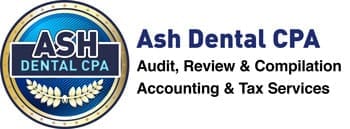Top 5 Bookkeeping Mistakes Most Dental Practices Make

It’s no secret that dental bookkeeping can be complicated and time consuming. But it’s also essential for the success of any dental practice. Poor bookkeeping can lead to costly mistakes that can put a dent in your business’s bottom line. To help you stay on track and avoid any major pitfalls, we’ve put together this guide on the five most common dental bookkeeping mistakes and how to fix them.
1. Not Tracking Your Accounts Receivable
One of the most common dental bookkeeping mistakes is failing to track your accounts receivable. It’s essential to stay on top of your accounts receivable so that you can stay on top of payments from patients and insurance companies. To make sure you’re tracking your accounts receivable correctly, make sure to set up a system that allows you to easily track patient payments, insurance payments, and any outstanding balances.
2. Not Keeping Detailed Receipts
Keeping detailed receipts is an important part of any dental bookkeeping system. Without proper receipts, it’s difficult to keep track of expenses and to prove that an expense was legitimate. Make sure to keep all receipts for any purchases you make, and store them in a safe place.
3. Not Creating a Budget
Budgeting may not be the most exciting task, but it’s an essential part of effective bookkeeping. Without a budget, it’s difficult to track expenses, set financial goals, and make informed decisions about your dental practice. Creating a budget may seem daunting, but it doesn’t have to be.
Start by taking a close look at your past expenses and income. This will give you a good idea of where your money is going and how much you have to work with each month. From there, you can start setting realistic financial goals for your practice. Once you have a budget in place, make sure to stick to it as closely as possible.
Review your expenses regularly and make adjustments as needed. By staying on top of your finances, you can avoid overspending and keep your dental practice on track.
4. Not Tracking Your Inventory
Inventory is an important part of any dental practice, and it’s essential to keep track of it properly. Without proper inventory tracking, it’s difficult to know how much of each item you need to order and if you’re losing money due to spoilage or theft. To stay on top of your inventory, create a system that allows you to track what items you have in stock, what needs to be ordered, and what has been sold.
5. Not Hiring a Dental Bookkeeper
The most important step to avoiding common dental bookkeeping mistakes is to hire a qualified dental bookkeeper. A bookkeeper can help you track accounts receivable, keep detailed records, create a budget and track inventory. They can also help ensure that your books are up-to-date and accurate. A bookkeeper can also provide valuable insights into your practice’s financial health and help you identify areas for improvement. By hiring a bookkeeper, you can rest assured that your books are in good hands and that all of your financial information is accurate and up-to-date.
Conclusion
Dental bookkeeping mistakes can be costly and time-consuming. To avoid these common errors, create a system that allows you to track your accounts receivable, keep detailed records, create a budget and track inventory. Additionally, consider hiring a qualified dental bookkeeper to manage your financial information and provide valuable insights into your practice’s financial health. By taking the time to create a strong financial system, you can save money and ensure that your practice’s finances are in good hands.
Ash Dental CPA offers accounting and tax services from a CPA for dentists in Framingham. Contact us today to know more about our services!
